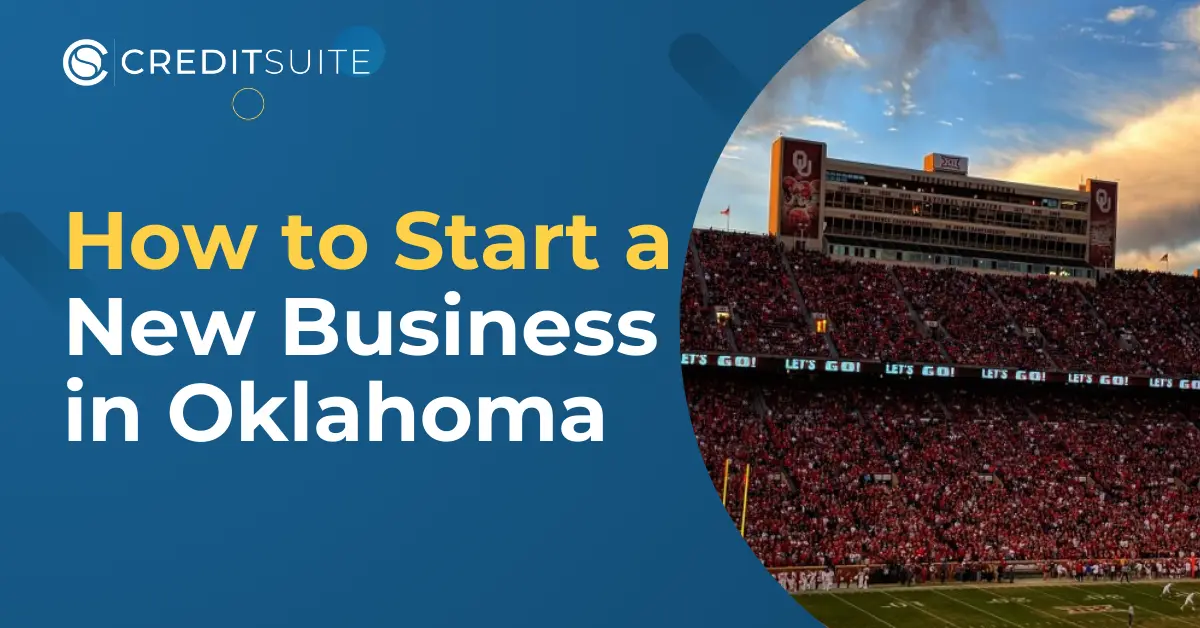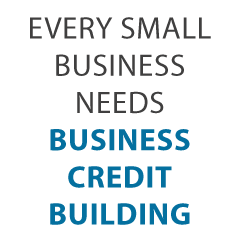Starting a Business in Oklahoma
A new business in Oklahoma is in your reach. So have you been wondering: how do I start a business in Oklahoma? And more importantly, can I do so no matter what the economic conditions are? Can I start a new business in Oklahoma during a recession?
New Business in Oklahoma: Pros and Cons
Business Insider puts Oklahoma in its middle ten states for starting a new business, per a 2016 article. Oklahoma also has the third highest rate of new entrepreneurs.
But Oklahoma also has the nation’s fourth worst business survival score. In addition, its potential employee education level is in the bottom 10 among states. But Oklahoma also has the fourth lowest cost of living in the country.
Changes
In 2018, Forbes puts Oklahoma at number 24. Also in 2022, CNBC clocks in Oklahoma at 38. These numbers are fairly consistent, even though the sites have differing methodologies and it’s a few years between the studies.
Forbes praises Oklahoma for its seventh-best business costs ranking. Its regulatory environment is also good. But then the other measurements are all in the thirties. They are: labor supply, economic climate, growth prospects, and quality of life.
CNBC says Oklahoma is second-best in the nation for cost of doing business (tied with Indiana; Missouri is #1). But Oklahoma is #14 for both cost of living and business friendliness. It’s #22 for access to capital, and #26 for infrastructure. But then the bottom drops out, and the state is in the 30s or 40s for all of CNBC‘s other metrics.
Oklahoma scores a dismal 47 for education and 48 for life, health, and inclusion.
Business people looking to start up in Oklahoma will need to weigh all of these factors to determine if the Sooner State is a worthwhile place to start a business.
New Business in Oklahoma: Initiatives
The Oklahoma Quality Jobs Program is a significant Oklahoma business resource. Under its terms, the state makes direct cash payments to businesses in targeted industries. These create and maintain jobs within the state.
Businesses may receive a payment of up to 5% of payroll expenses for up to 10 years if certain growth benchmarks are met. Jobs must meet wage and benefit requirements to be eligible. It is meant to grow Oklahoma’s manufacturing base. This program has helped create up to 400,000 jobs over the past 20 years.
21st Century Oklahoma Quality Jobs Program
The state has a similar program targeting small businesses with payments. These are in support of jobs created for up to 7 years.
Another Oklahoma business resource is the related 21st Century Oklahoma Quality Jobs Program. It targets the creation of jobs in high wage, knowledge-based industries via cash incentives of up to 10% of payroll for jobs that pay above median wage levels.
Start a New Business in Oklahoma – Oklahoma Top Industries
Per the Greater Oklahoma City Chamber of Commerce, top industries in Oklahoma are biotechnology, energy, aviation/aerospace, transportation and logistics, business services, government, and health care and social assistance. More top industries are weather, telecommunications, and hospitality and entertainment. Yes, weather, as the state’s ecosystem produces interesting conditions for study by meteorologists around the globe.
Smart business owners can find new opportunities. Work with bigger industries in the state. Offer goods or services such as data and other computer support such as programming. More ideas are also trucking for any industry, and food service. Other ideas are also the development and distribution of safety and measurement equipment.
Here is exactly how to start business in Oklahoma.
Start a New Business in Oklahoma – Oklahoma New Business Secretary of State Requirements
Register a Business Name
Register a business name on the Oklahoma Commerce website.
Corporations
Corporations must have unique names. To find out if the is available, search online records and other archives and catalogs. There is a database of registered Oklahoma corporations at the Oklahoma Secretary of State website.
Corporate Name Reservations
A business owner does not need to reserve a corporate name before filing Articles of Incorporation in Oklahoma. If they decide to do so anyway, they can submit a name reservation application to the office of the Oklahoma Secretary of State. Find the name reservation application form at Reserve an Oklahoma Corporation Name on the Oklahoma Secretary of State website. The filing fee is $10.00. The submitted name will then be reserved for 60 days.
Business Permits and Licenses
Check out the Oklahoma Business Licensing and Operating Requirements page on the Department of Commerce website.
Local Permits and Licenses
Check with your local municipality, city or county office or website. See if there may be any local licensing or permit requirements.
For example, in Tulsa, go to the Business Licensing page on the city of Tulsa website.
Start a New Business in Oklahoma – Business Registration
Information and forms are on the Oklahoma Secretary of State website.
Tax Registration
Make sure that you register your business with the Oklahoma Tax Commission.
Start a New Business in Oklahoma – Virtual Offices
Alliance Virtual Offices offers Oklahoma virtual business office space in Edmond, Oklahoma City, and Tulsa. So go to Regus for more options for OKC and Tulsa. Also, go to DaVinci for Weatherford.
For other areas of the state, however, ask local business owners. Or try computer user groups for help in this area.
Other options may be virtual business office space in nearby states. These are Arkansas, Colorado, Kansas, Missouri, New Mexico, and also Texas.
Start a New Business in Oklahoma – Establish Business Credit
Business credit is credit in a business’s name. It doesn’t connect to a business owner’s consumer credit, not even when the owner is a sole proprietor and the solitary employee of the business.
Thus, a business owner’s business and consumer credit scores can be very different.
The Benefits
Because company credit is distinct from consumer, it helps to protect a business owner’s personal assets, in the event of court action or business insolvency.
Also, with two distinct credit scores, an entrepreneur can get two separate cards from the same vendor. This effectively doubles buying power.
Another advantage is that even new ventures can do this. Heading to a bank for a business loan can be a formula for frustration. But building business credit, when done right, is a plan for success.
Consumer credit scores are dependent on payments but also additional considerations like credit usage percentages.
But for business credit, the scores really only depend on whether a company pays its invoices timely.
The Process
Growing company credit is a process, and it does not happen without effort. A business has to proactively work to develop company credit.
Nevertheless, it can be done readily and quickly, and it is much more rapid than establishing individual credit scores.
Merchants are a big aspect of this process.
Performing the steps out of sequence will cause repetitive rejections. No one can start at the top with business credit.
Business Fundability™
A business must be Fundable to lending institutions and merchants.
Hence, a business will need a professional-looking web site and email address. And it needs to have website hosting from a supplier such as GoDaddy.
In addition, the company telephone number should be toll-free (800 exchange or comparable).
A company will also need a bank account dedicated purely to it. And it has to have every one of the licenses necessary for operation.
Working with the IRS
Visit the IRS web site and acquire an EIN for the small business. They’re totally free. Pick a business entity such as corporation, LLC, etc.
A business can start off as a sole proprietor. But they should change to a form of corporation or an LLC.
This is in order to diminish risk. And it will make the most of tax benefits.
A business entity will matter when it concerns taxes and liability in the event of litigation. A sole proprietorship means the business owner is it when it comes to liability and taxes. Nobody else is responsible.
Beginning the Business Credit Reporting Process
Begin at the D&B web site and get a free D-U-N-S number. A D-U-N-S number is how D&B gets a business into their system, to generate a PAYDEX score. If there is no D-U-N-S number, then there is no record and no PAYDEX score.
Once in D&B’s system, search Equifax and Experian’s sites for the company. You can do this at www.creditsuite.com/reports. If there is a record with them, check it for accuracy and completeness. If there are no records with them, go to the next step in the process.
By doing this, Experian and Equifax will have activity to report on.
Vendor Credit
First you should build trade lines that report. This is also known as vendor credit. Then you’ll have an established credit profile, and you’ll get a business credit score.
And with an established business credit profile and score you can begin to get credit. So this is retail and cash credit.
These types of accounts often tend to be for the things bought all the time. They include marketing materials, shipping boxes, and office furniture.
But first of all, what is trade credit? These trade lines are credit issuers who will give you preliminary credit when you have none now. Terms are commonly Net 30, versus revolving.
So, let’s say you get approval for $1,000 in vendor credit and use all of it. Then you must pay that money back in a set term. For example, within 30 days on a Net 30 account.
Details
Net 30 accounts have to be paid in full within 30 days. 60 accounts have to be paid completely within 60 days. In comparison with revolving accounts, you have a set time when you have to pay back what you borrowed or the credit you made use of.
To start your business credit profile properly, you need to get approval for vendor accounts. But you mainly want accounts that report to the business credit reporting agencies. When that’s done, you can then make use of the credit.
Then repay what you used, and the account is on report to Dun & Bradstreet, Experian, or Equifax.
Start a New Business in Oklahoma – Monitor Your Business Credit
Know what is happening with your credit. Make certain it is being reported and attend to any mistakes ASAP. Get in the practice of taking a look at credit reports. And dig into the particulars, and not just the scores.
We can help you keep track of your business credit at major CRAs for a lot less than it would cost you at the CRAs.
Update Your Record
Update the info if there are errors or the data is incomplete.
Fix Your Business Credit
So, what’s all this monitoring for? It’s to challenge any errors in your records. Mistakes in your credit report(s) can be corrected. But the CRAs usually want you to dispute in a particular way.
Disputes
Disputing credit report mistakes generally means you precisely spell out any charges you dispute.
Start a New Business in Oklahoma – A Word about Business Credit Building
Always use credit smartly! Don’t borrow more than what you can pay back. Monitor balances and deadlines for payments. Paying off promptly and completely will do more to raise business credit scores than just about anything else.
Establishing business credit pays off. Good business credit scores help a company get loans. Your credit issuer knows the small business can pay its debts. They understand the small business is for real.
The business’s EIN attaches to high scores and loan providers won’t feel the need to ask for a personal guarantee.
Business credit is an asset which can help your company for many years to come.
Learn more here and get started toward opening a new business in Oklahoma.
Want to start a new business someplace else in America? Then check out our handy guide to starting a business in any state in the country.
Oklahoma’s Response to COVID-19
On March 17, Governor Kevin Stitt urged Oklahomans to avoid eating in restaurants. He also discouraged discretionary travel and shopping trips. And he discouraged gatherings of more than ten people. But he initially did not declare any closings.
The Governor received a great deal of backlash for a tweet of him eating in a crowded restaurant with his family. After that, the Governor walked that back and declared a state of emergency.
As a result, Oklahoma small businesses are eligible to apply for emergency disaster loans from the SBA.
On April 15, it was announced that Oklahoma students with loan debt will get some relief under the CARES Act.


